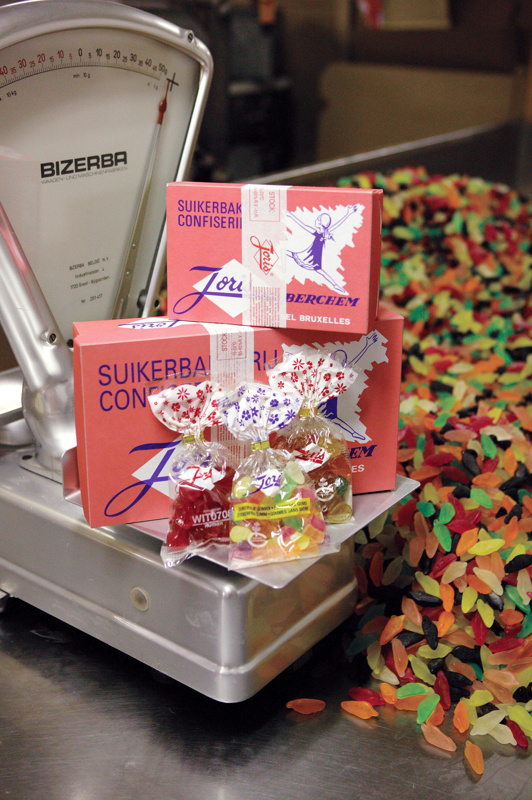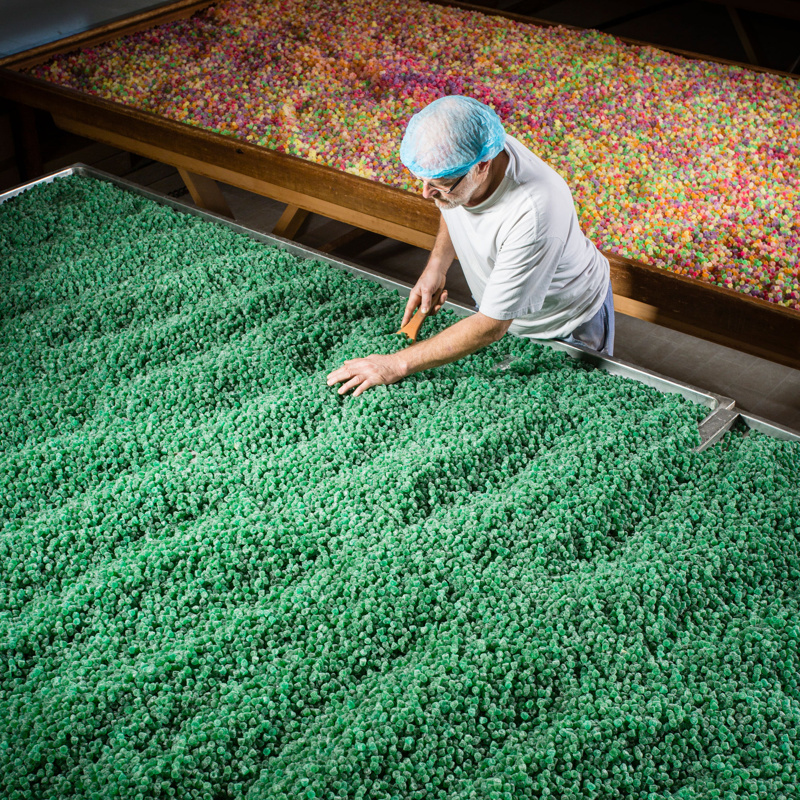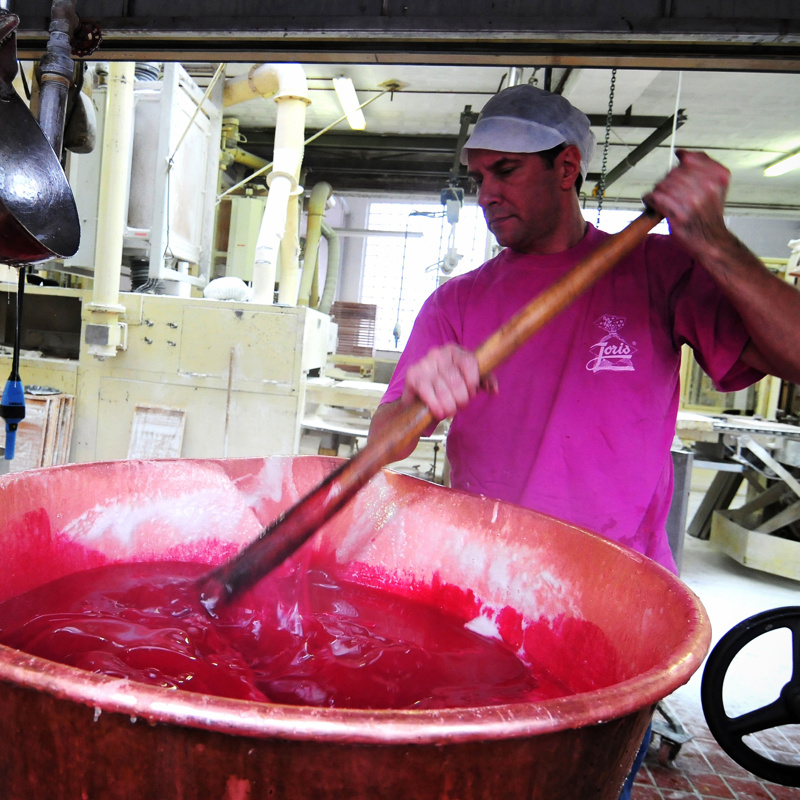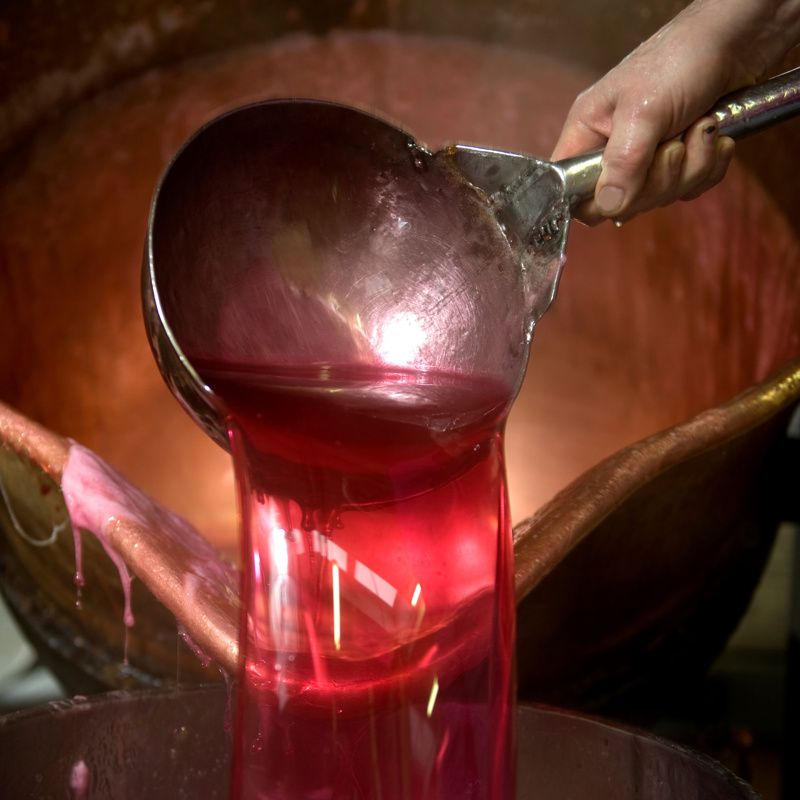Manual production
Today, our gums are still prepared using the traditional method: in open copper kettles. This allows us to guarantee consistent quality and respect each individual natural ingredient. We do this to ensure the high quality that we at Joris wish to achieve. From the beginning, all our gums have always been produced and packaged, from start to finish, in Sint-Agatha-Berchem in Brussels. In order to achieve the quality we strive for, we handle the production and packaging ourselves, use the same artisanal methods established more than 100 years ago and follow the principles set out by our founder Joris.
Hard gums:
Vegan - Gluten-free
Joris is one of the few businesses that still uses real acacia gum — the foundation of its hard gums — as one of its basic ingredients. Acacia gum is a great binding agent, but also very expensive. Our competitors therefore choose to use other ingredients made with potato starch or wheat instead. Unfortunately, these ingredients do not share the same advantages of acacia gum, which is not sticky, easily dissolves in the mouth and is low in calories. On 27 April 2018, Joris Sweets was represented at the United Nations in Geneva during round table discussions between representatives of growers and processors of acacia gum, which is a sustainable raw material. In addition to the ways this ingredient improves the end product, there are also proven benefits with regard to local social development, desertification and drought prevention.
Therefore, Joris Sweets also has a range of hard gums that are officially certified as organic and fair trade.
After a one-week drying period, the gums undergo their final processing. Washed gums such as the Belgas and Cherries are washed in a steam bath, which gives them a beautiful shine without the need for animal-derived washes. Due to their natural ingredients these hard gums are also suitable for vegans. Joris Sweets is the only confectioner in Europe that still uses this technique.
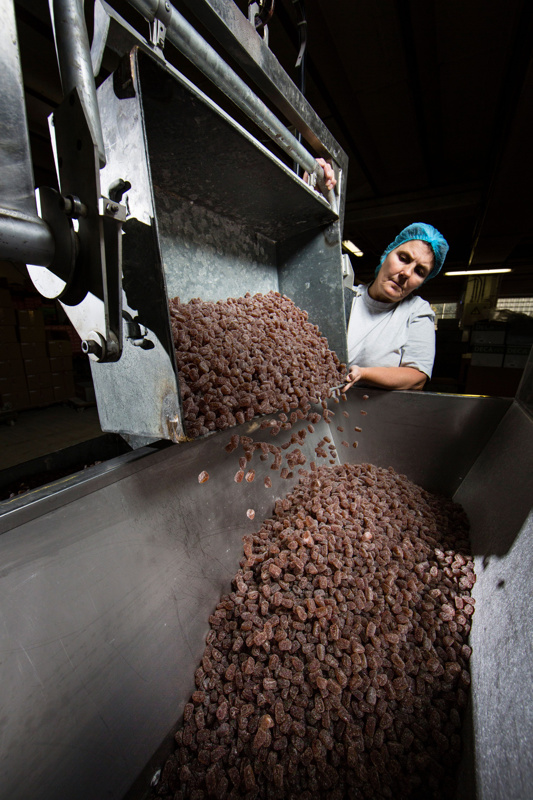
Soft gums
The foundation for soft gums is the same as for hard gums: sugar and glucose. Added to this is a gelling agent (binding agent) used in lesser amounts than in hard gums, in which 50% acacia gum is used. Aside from this, the same ingredients are added.
When the boiled mixture is finished, it is usually poured into the mould using the same “mogul”, or pouring machine, as used for hard gums.
The big difference between hard and soft gums is that soft gums only need to be cooled to give the edible gelatine time to set. After a cooling period of 24 hours, the soft gums are ready to be returned to the same mogul machine to be de-powdered and prepared to be manually made into oiled or sugared gums.
The moisture content of soft gums is higher than in hard gums. Gelatine creates a higher residual moisture content in the sweets, without making them sticky. That’s why soft gums are much softer than hard gums. They are also quicker to produce and don’t need to be dried in a drying room to evaporate the excess water.
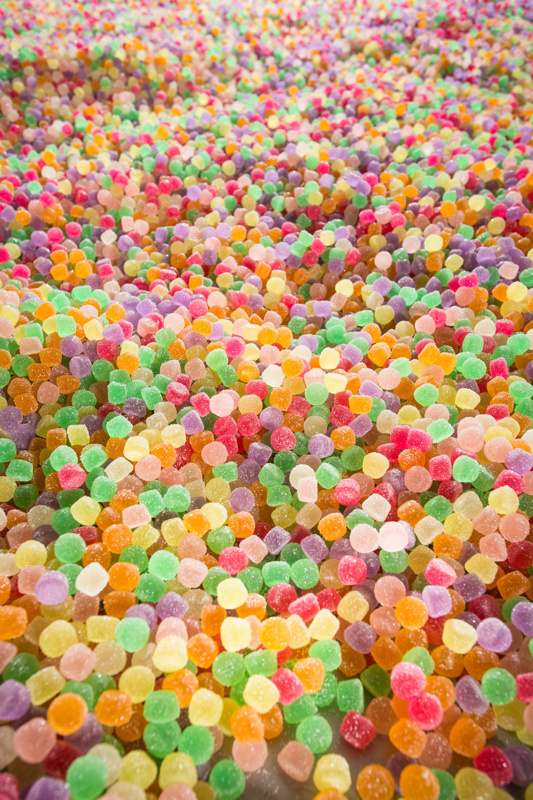
Why are the sweets poured into cornflour?
We fill containers with cornflour. A frame with, for example, 640 plaster bears is then pressed into the containers.
The secret recipe for our gums is pumped into each specific mould using a special pump. The containers are placed one on top of the other by the machine until the stack reaches a height of 2 metres. These stacks are then transported to the drying room or cooling area.
A pouring machine, or “mogul”, can process 12 to 30 containers per minute. Each container holds around 4 kg of flour, so the machine processes 48 to 120 kg of flour per minute! The flour from the previous containers (filled with sweets that, for example, were poured 24 hours ago) is sieved and reused to fill more containers for pouring new sweets.
An important advantage of the flour is that it soaks up water. A plastic mould can’t do that. Flour insulates so we can achieve a gradual cooling, which in some cases is an advantage. In addition, wooden containers are more sustainable than plastic containers.
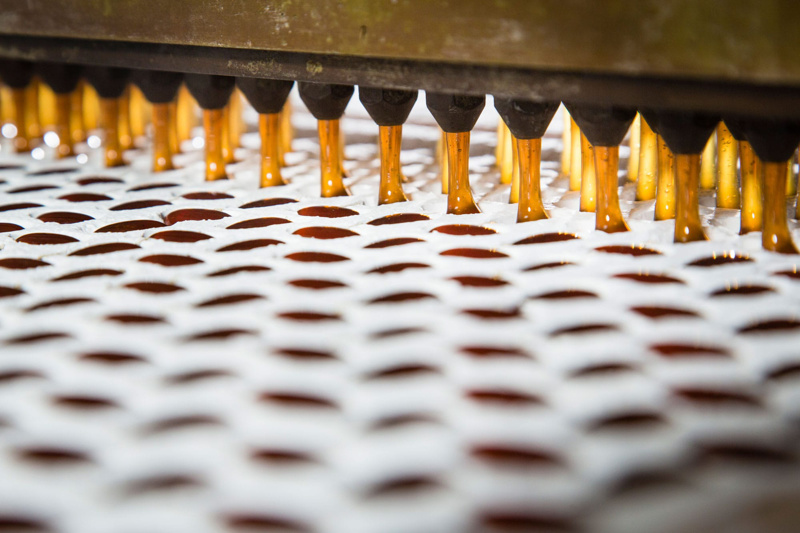
Packaging and delivery
The processed sweets are then moved to our packaging department. Our products are only ever packaged with our own branding. There they can be packaged in bags of 130 g for hard, sugar-free gums, and 125 g for soft gums. We also have larger quantities weighing 1 kg or 2.5 kg packaged in our characteristic pink cardboard boxes for market stalls and transparent containers for the various distribution channels.
The bags are made of cellophane, which is a type of packaging made of natural cellulose and is biodegradable.
We also take care of our own deliveries.
As an artisanal manufacturer, you can find our products at markets, wholesalers, cash & carrys and department stores. Our items are for sale at: Bioplanet, Carrefour, Colruyt, Delhaize, Delitraiteur, Intermarché, Makro, Match, Metro, Okay, Spar, petrol stations, corner shops, delicatessens, newsagents, market stalls, cinemas, 24-hour convenience stores, video shops and many other locations.
